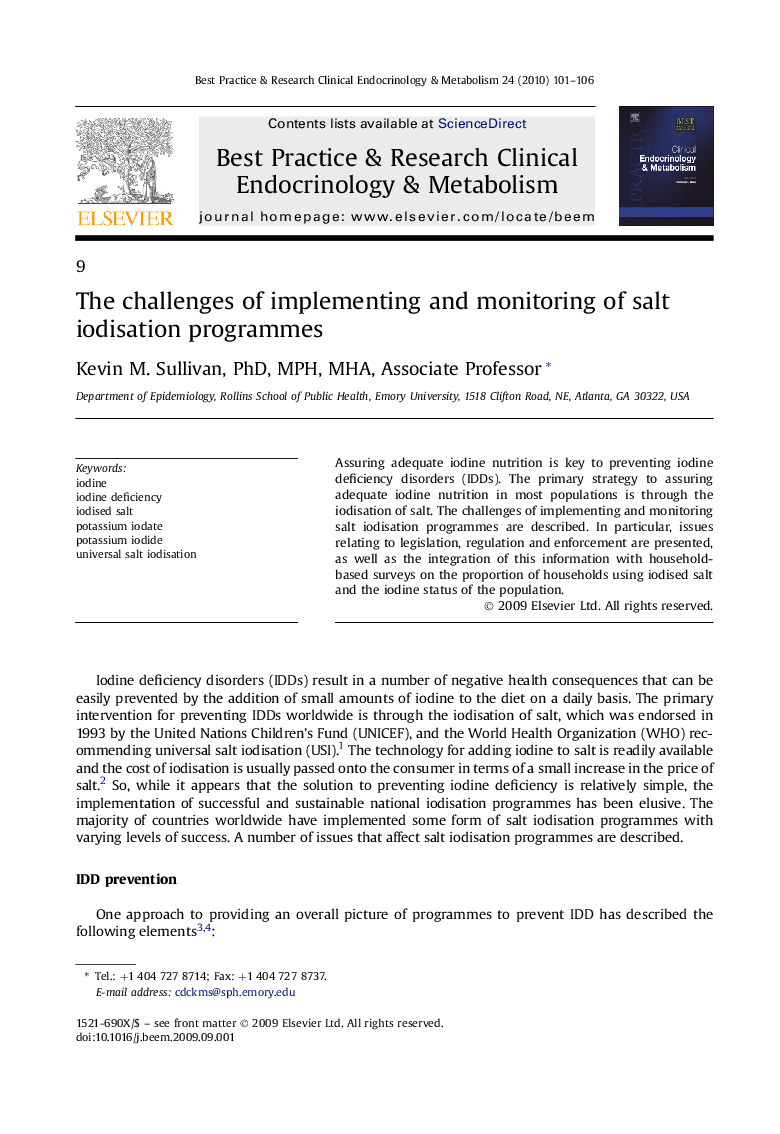| Article ID | Journal | Published Year | Pages | File Type |
|---|---|---|---|---|
| 2792002 | Best Practice & Research Clinical Endocrinology & Metabolism | 2010 | 6 Pages |
Abstract
Assuring adequate iodine nutrition is key to preventing iodine deficiency disorders (IDDs). The primary strategy to assuring adequate iodine nutrition in most populations is through the iodisation of salt. The challenges of implementing and monitoring salt iodisation programmes are described. In particular, issues relating to legislation, regulation and enforcement are presented, as well as the integration of this information with household-based surveys on the proportion of households using iodised salt and the iodine status of the population.
Related Topics
Life Sciences
Biochemistry, Genetics and Molecular Biology
Endocrinology
Authors
Kevin M. Sullivan,
